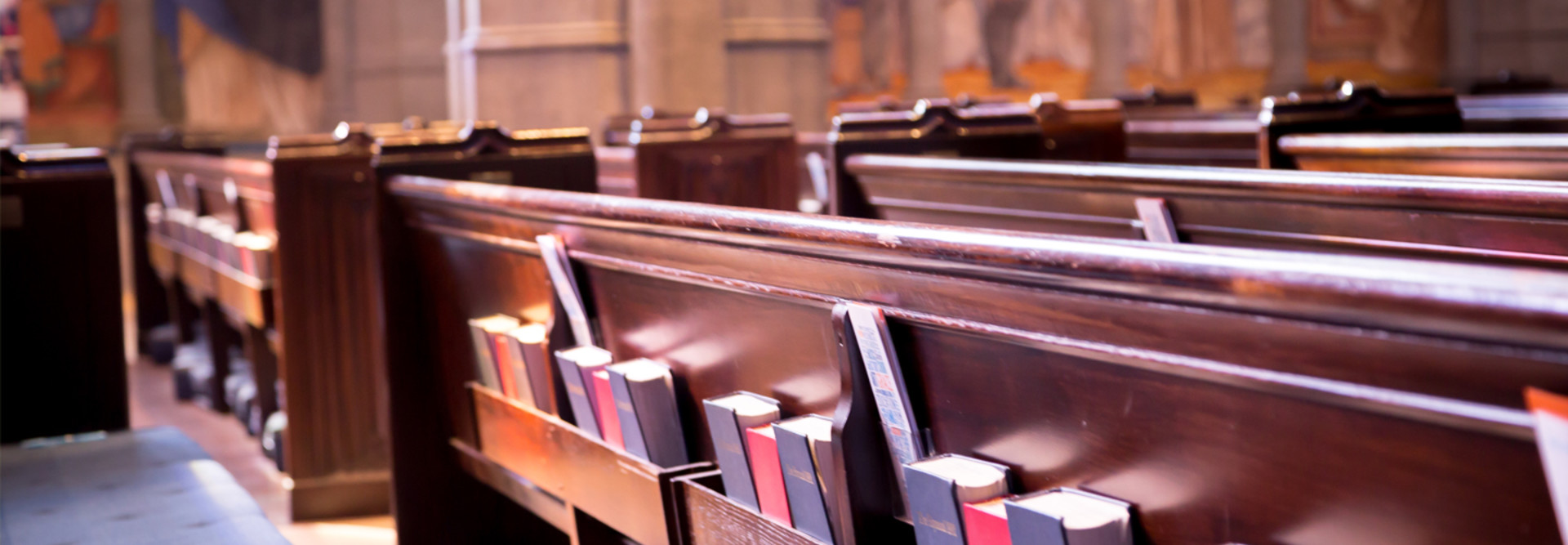How a Nonprofit Is Boosting Security for Houses of Worship
If there’s one place outside their own homes that most people would hope to feel safe, it’s likely their house of worship. Sadly, though, as tragic headlines from the past few years have shown, this sense of safety can be shattered in an instant.
Attacks on churches, synagogues and mosques have left entire communities in mourning — and left worshippers around the country searching for ways to protect themselves and each other.
A Leesburg, Va., nonprofit is working to help. The Faith-Based Information Sharing and Analysis Organization, or FB-ISAO, works across different faiths and denominations to analyze and share information about threats and risks and how to mitigate them. In addition to physical security, the group works with houses of worship to address public health concerns, such as flu outbreaks and natural disasters.
The nonprofit also helps religious organizations to improve their cybersecurity practices — an important service, given that many houses of worship lack the internal expertise to develop and implement their own cybersecurity strategies.
How to Bolster Physical Security for Houses of Worship
Physical security is paramount for houses of worship right now.
“You’re never going to build a fortress or a wall around a place of worship or other faith-based organization to make them inaccessible,” Andy Jabbour, managing director of FB-ISAO, tells news station WTOP. “But we can do a lot of things to help build security and resilience, so we worship more peacefully, so we can be more prepared.”
The organization neither supports nor opposes armed security, but FB-ISAO gives religious leaders quick access to resources and information around measures such as evacuation drills and background checks. In June, the organization published a threat overview about theft and vandalism, highlighting an array of recent incidents from around the country. These included an attempted robbery of a Buddhist temple in Virginia, a window-smashing incident at a Tulsa, Okla., church and the use of explosives to damage a Renton, Wash., church’s multicolored display that declared “God’s doors are open to all.”
The group noted the importance of measures such as security cameras to deter and respond to such events, and also provided information about an incident-reporting platform that is free for FB-ISAO members.
The nonprofit’s website also includes links to resources on active-shooter preparedness, recognizing violent radicalization, arson prevention and safe mail-handling procedures.
MORE FROM BIZTECH: Discover what your nonprofit needs to know about zero-trust security.
Why Faith-Based Organizations Need to Practice Cybersecurity
In addition to physical security, the nonprofit also focuses on cybersecurity best practices.
“Cybersecurity can seem overwhelming, and security solutions may be confusing and costly,” FB-ISAO notes on its website. “Working hand in hand with our trusted partners, FB-ISAO leverages trusted partners and capabilities to enhance member and community cybersecurity.”
The group offers a sensor-based system with an intuitive interface that integrates threat intelligence directly with member organizations’ networks. Additionally, the nonprofit has recently published threat overviews and blog posts on topics like digital extortion, ransomware and access controls.
A working group on cyberthreat intelligence, established earlier this year, will focus on identifying cyberthreats relevant to the faith-based community and developing specific actions for members to consider in response to these threats.
The nonprofit’s website also includes links to resources on Internet of Things security, cyber incident mitigation and online scams that target small organizations.
“A lot of people like to think, ‘I’m not a target, it’s the banks, it’s the hospitals,’” Jabbour tells WTOP. “But in reality, everybody’s a target, and sometimes that’s very specifically … a place of worship.”










